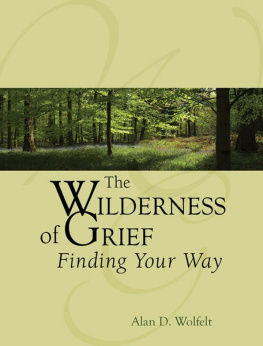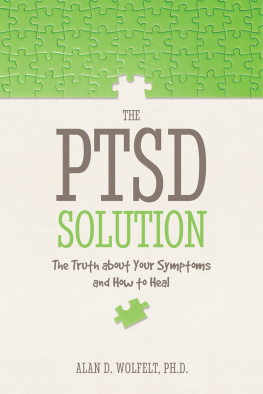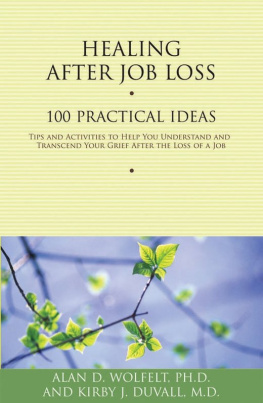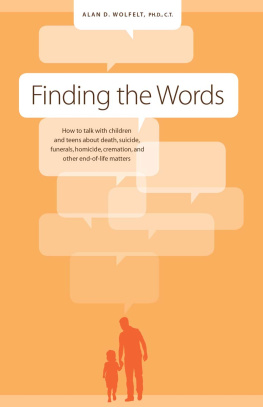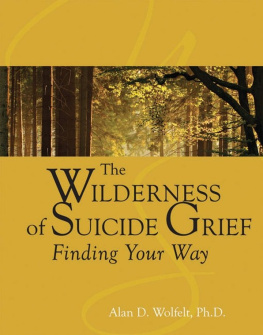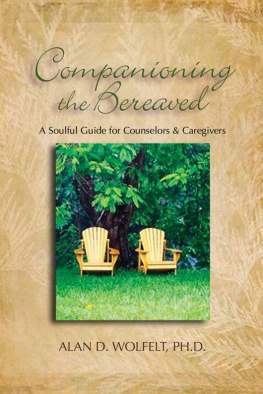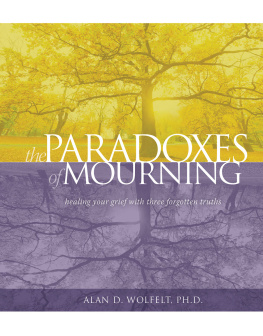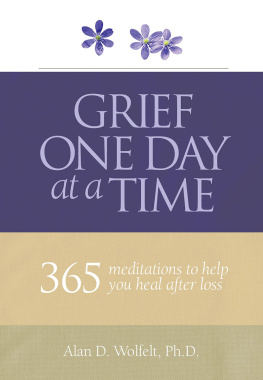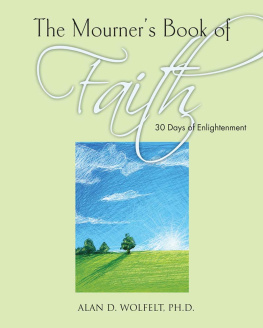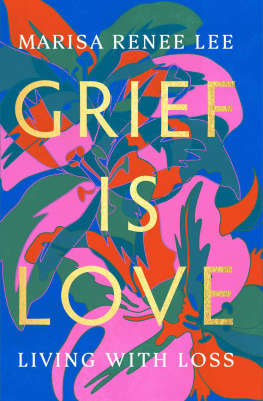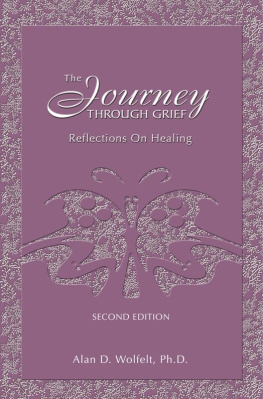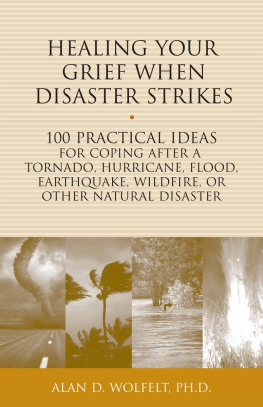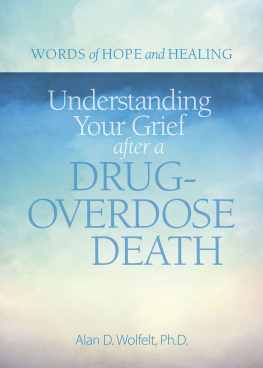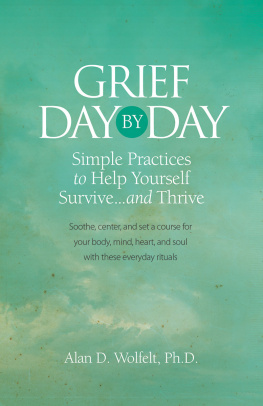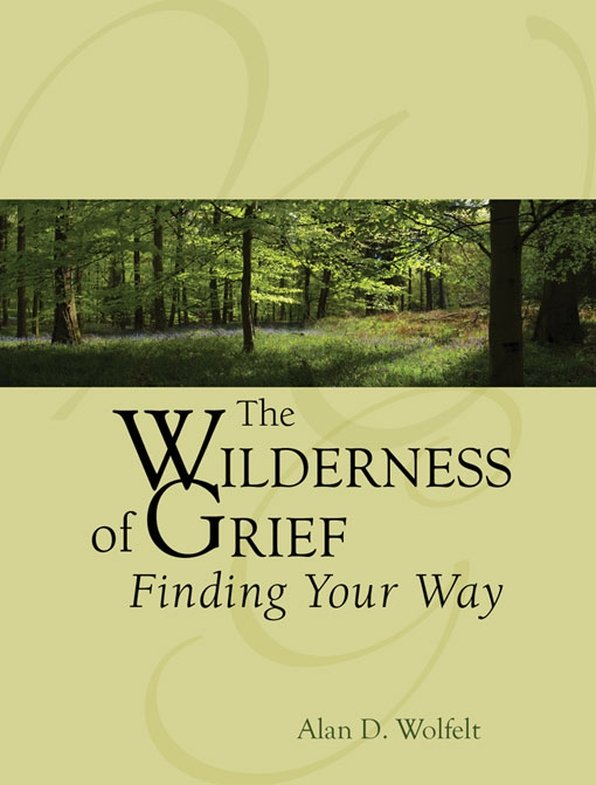Author, educator and grief counselor Dr. Alan Wolfelt is known across North America for his compassionate messages about healing in grief. He is committed to helping people mourn well so they can go on to live well and love well.
Dr. Wolfelt is founder and Director of the Center for Loss and Life Transition, located in the beautiful mountain foothills of Fort Collins, Colorado. Past recipient of the Association of Death Education and Counselings Death Educator Award, he is also a faculty member of the University of Colorado Medical Schools Department of Family Medicine.
The Mourners Bill of Rights
Though you should reach out to others as you journey through grief, you should not feel obligated to accept the unhelpful responses you may receive from some people. You are the one who is grieving, and as such, you have certain rights no one should try to take away from you.
The following list is intended both to empower you to heal and to decide how others can and cannot help. This is not to discourage you from reaching out to others for help, but rather to assist you in distinguishing useful responses from hurtful ones.
- You have the right to experience your own unique grief.
No one else will grieve in exactly the same way you do. So, when you turn to others for help, dont allow them to tell what you should or should not be feeling.
- You have the right to talk about your grief.
Talking about your grief will help you heal. Seek out others who will allow you to talk as much as you want, as often as you want, about your grief. If at times you dont feel like talking, you also have the right to be silent.
- You have the right to feel a multitude of emotions.
Confusion, disorientation, fear, guilt and relief are just a few of the emotions you might feel as part of your grief journey. Others may try to tell you that feeling angry, for example, is wrong. Dont take these judgmental responses to heart. Instead, find listeners who will accept your feelings without condition.
- You have the right to be tolerant of your physical and emotional limits.
Your feelings of loss and sadness will probably leave you feeling fatigued. Respect what your body and mind are telling you. Get daily rest. Eat balanced meals. And dont allow others to push you into doing things you dont feel ready to do.
- You have the right to experience griefbursts.
Sometimes, out of nowhere, a powerful surge of grief may overcome you. This can be frightening, but it is normal and natural. Find someone who understands and will let you talk it out.
- You have the right to make use of ritual.
The funeral ritual does more than acknowledge the death of someone loved. It helps provide you withthe support of caring people. More important, the funeral is a way for you to mourn. If others tell you the funeral or other healing rituals such as these are silly or unnecessary, dont listen.
- You have the right to embrace your spirituality.
If faith is a part of your life, express it in ways that seem appropriate to you. Allow yourself to be around people who understand and support your religious beliefs. If you feel angry at God, find someone to talk with who wont be critical of your feelings of hurt and abandonment.
- You have the right to search for meaning.
You may find yourself asking, Why did he or she die? Why this way? Why now? Some of your questions may have answers, but some may not. And watch out for the clichd responses some people may give you. Comments like, It was Gods will or Think of what you still have to be thankful for are not helpful and you do not have to accept them.
- You have the right to treasure your memories.
Memories are one of the best legacies that exist after the death of someone loved. You will alwaysremember. Instead of ignoring your memories, find others with whom you can share them.
- You have the right to move toward your grief and heal.
Reconciling your grief will not happen quickly. Remember, grief is best experienced in doses. Be patient and tolerant with yourself and avoid people who are impatient and intolerant with you. Neither you nor those around you must forget that the death of someone loved changes your life forever.
TOUCHSTONE ONE
Open to the Presence of Your Loss
Its as if the realness of what has happened waits around a corner. I dont want to make the turn, yet I know I must. Slowly, I gather the courage to approach.
Someone you love has died.
In your heart, you have come to know your deepest pain. I have learned that we cannot go around the pain that is the wilderness of our grief. Instead, we must journey all through it, sometimes shuffling along the less strenuous side paths, sometimes plowing directly into the dark center.
In your willingness to embrace the pain, you honor it. Crazy as it may sound, your pain is the key that opens your heart and ushers you on your way to healing.
In many ways, and as strange as it may seem, this book is intended to help you honor your pain. Honoring means recognizing the value of and respecting. To honor your grief is not self-destructive or harmful, it is self-sustaining and life-giving!
You will learn over time that the pain of your grief will keep trying to get your attention until you have the courage to gently, and in small doses, open to its presence. The alternativedenying or suppressing your painis in fact more painful.
Setting your intention to heal
It takes a true commitment to heal in your grief. Yes, you are changed, but with commitment and intention you can and will become whole again. Intention is defined as being conscious of what you want to experience.
When you set your intention to heal, you commit to positively influence the course of your journey. You might tell yourself, I can and will reach out for support in my grief. I will become filled with hope that I can and will survive this loss. Together with these words, you might form mental pictures of hugging and talking to your friends and seeing your happier self in the future.
Of course, you must still honor and embrace your pain during this time. You are committing to paying attention to your anguish in ways that allow you to begin to breathe life into your soul again.
In this book I will attempt to teach you to gently and lovingly befriend your grief. Slowly, and in doses, you can and will return to life and begin to live again in ways that put the stars back into your sky.
Making grief your friend
To lessen your hurt, you must embrace it. As strange as it may seem, you must make it your friend.
When I reflect on making grief my friend, I think about my father. Sometimes when I fully acknowledge that Ill never see my father physically on this earth again, I am engulfed by overwhelming sadness. Then, with intention, I realize that while my father has been dead for over three years, my love for him has continued to grow. My intention is to honor his presence while acknowledging his absence. The beauty of this is that while I mourn, I can continue to love.

